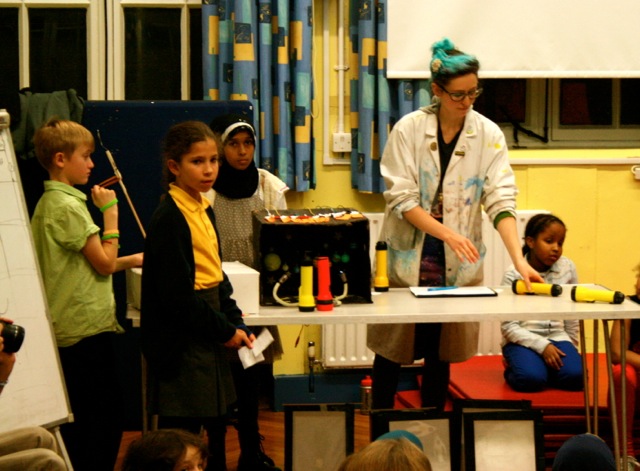Why can’t teachers and school inspectors play nicely together?
In theory they share the same goal: The best possible education for all children in England and Wales. In practice, they’ve been descending into the kind of name calling that should get them sent to the head teacher’s office for a stern telling off.
The Chief Inspector of Ofsted, Sir Michael Wilshaw frequently implies that our schools are full of bad teachers and malign heads intent on thwarting children’s progress.
The teaching unions accuse him of bullyboy tactics and say his rhetoric is creating a climate of fear in schools. And the press happily reports the ruckus. “Schools face talent drain as teachers’ morale dives” says the latest Observer front page headline.
You can see why. Shortly after his appointment as head of Ofsted, Sir Michael Wilshaw called for improvements saying “we have tolerated mediocrity for far too long – it has settled into the system”. Some schools judged Outstanding would have their status reviewed and all inspections would be unannounced. Sir Michael also said about a quarter of head teachers were underperforming. That’s one way of interpreting Ofsted’s gradings but if he had wanted to make friends he could have said that more than 75% are judged Good or Outstanding.
But Sir Michael isn’t out to make friends. He’s kept up the onslaught telling a conference just last week that head teachers “too often make excuses for poor performance”. He added that they didn’t know the meaning of the word stress.
It’s not surprising teachers and their representatives haven’t exactly warmed to Sir Michael, a former head himself. But more importantly, he’s fuelling an already destructive relationship between government and the teaching profession which does nothing at all to help improve schools.
That is after all the point: To improve the quality of teaching and learning for all children. It’s laudable – it’s vital – and if he dropped the insults for a moment and talked to head teachers as professionals, Sir Michael might be surprised to find the majority of them are just as keen on rigorous standards and good teaching as he is.
The question then is how to get there. Well, we could do worse than consider suggestions published late last month by the House of Commons Select Committee on Education. It concludes that good teaching is the key to good education and considers ways to attract and retain the very best. The bit that made the headlines was, unsurprisingly, the suggestion that good teachers should be rewarded with better pay than weak ones.
Reported (wrongly for the most part) as a proposal to pay teachers according to results (which would be unfair) the response was a cry of horror from the main teaching unions and much of the press. “Payment by results is total nonsense,” said Christine Blower, head of the National Union of Teachers, “Children are not tins of beans and schools are not factory production lines”.
Nobody said they were.
What the committee actually recommends is that the Department for Education “develop proposals (based on consultation and a close study of systems abroad) for a pay system which rewards those teachers who add the greatest value to pupil performance.”
The notion of added value is tricky because it’s hard to agree on how to measure it. But the idea is to look at school results in context. That way, pupils from deprived backgrounds or those with Special Educational Needs can be assessed as having achieved if they make good progress, even if they don’t attain the required SATS level or other formal test results.
And what’s wrong with rewarding the teachers who through skill and hard work bring about that achievement? As long as the assessment criteria are fair and the judgments transparent then why shouldn’t teachers get the kind of financial rewards and incentives that most of us expect when we perform well at work?
Surely that would enhance the professional status that most teachers rightly crave. It’s what many heads want but are too frightened to say out loud. They’re the ones who know how well their staff perform, and they’d love a more effective system for offering incentives to hang on to the good ones while easing the really bad ones out.
So maybe it’s time for a deal. Sir Michael, stop referring to teachers, particularly heads, with contempt. Talk to them, you’ll find many have the passion and ideas that drive success. Teaching unions, get real and recognise that along with the respected professional status you want (and deserve) must come rigorous evaluation and acceptance that bad practice must be dealt with quickly.
Now, no more fighting. Go and play nicely or some children could get hurt.
